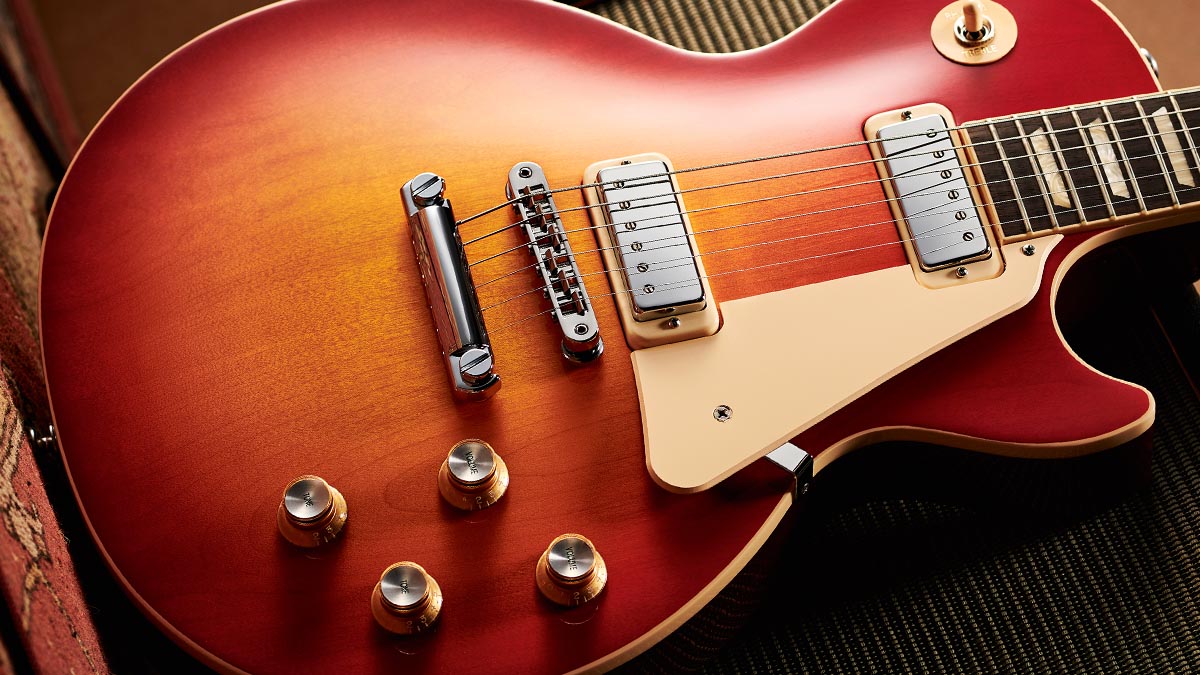MusicRadar Verdict
A clever and stylish reworking of a lost '70s model puts clarity and brighter tones on the menu from the classic Les Paul format.
Pros
- +
Comfortable, fat neck, very playable.
- +
Mini-humbuckers sound fresh and are surprisingly versatile.
- +
Nice finish and build.
Cons
- -
We'd love a Wine Red finish option.
MusicRadar's got your back
Gibson Les Paul '70s Deluxe: What is it?
Ask the average guitar player to list their favourite Les Paul and the chances are the Deluxe is nowhere near the top five. That, of course, speaks to the appeal of the other Les Pauls in the Gibson lineup, and how successful the company has been in revising one of the most enduring electric guitar designs of all time.
But it might also be down to a question of timing. The Les Paul Deluxe arrived in 1969, just as the company transitioned to the Norlin era, during which many brand aficionados would tell you was a difficult time. And the original Deluxe’s played fast and loose with the spec of the original Les Paul Standard.
There were larger headstocks, introducing a volute to strengthen said headstock, mahogany three-piece necks, maple three-piece necks, and in many instances a laminate ‘pancake’ body construction. The Deluxe’s USP, however, was its pickups; mini-humbuckers that offered the same hum-cancelling performance but with a brighter tone.
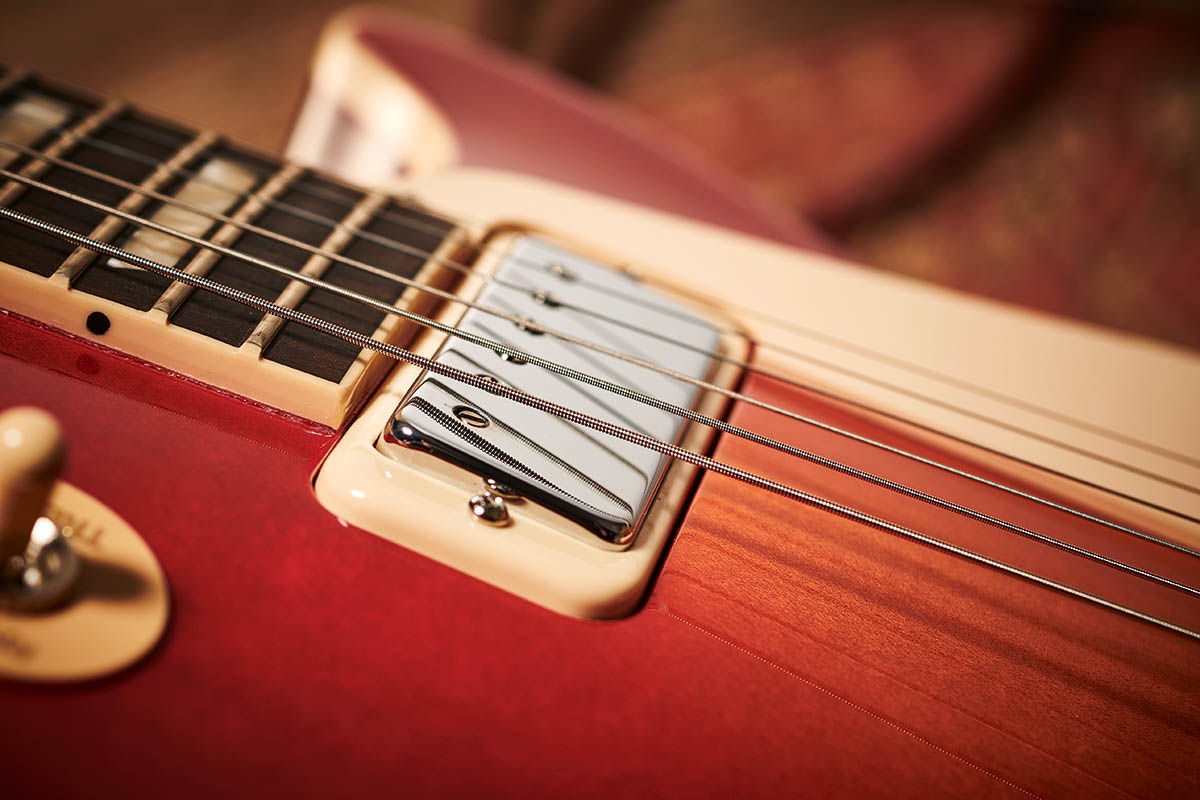
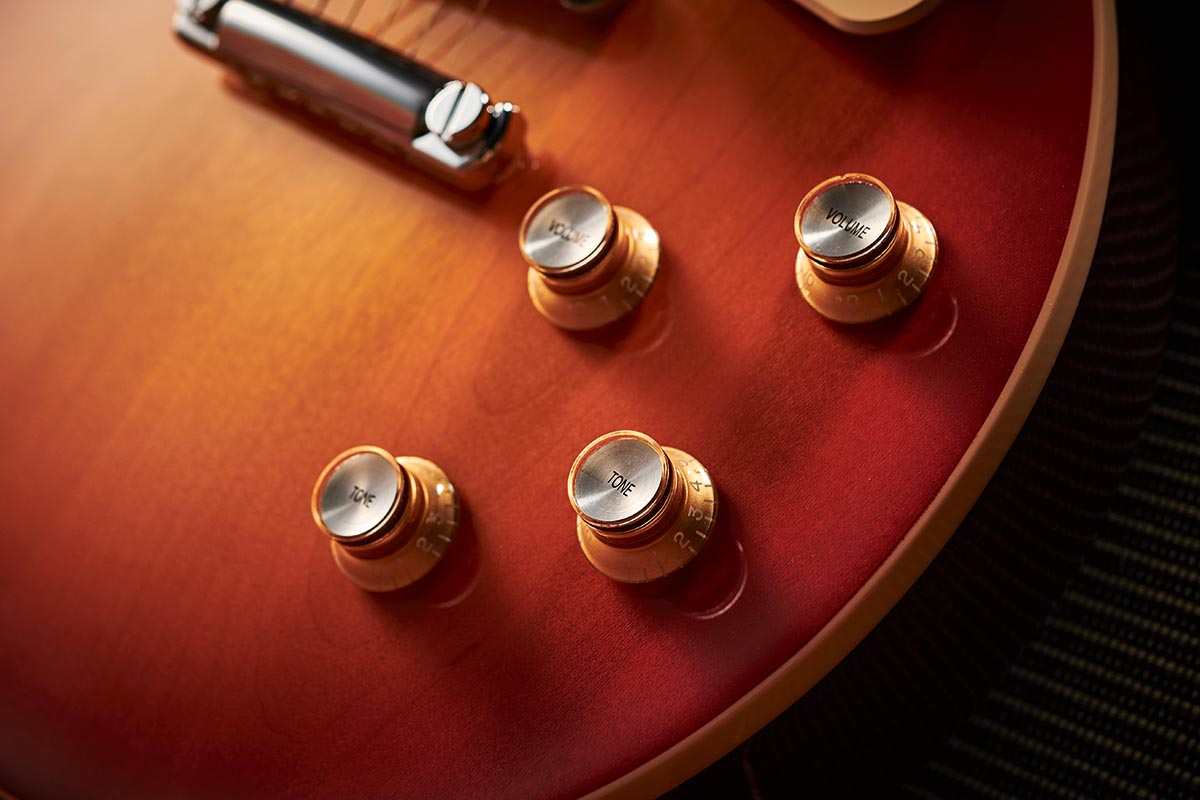
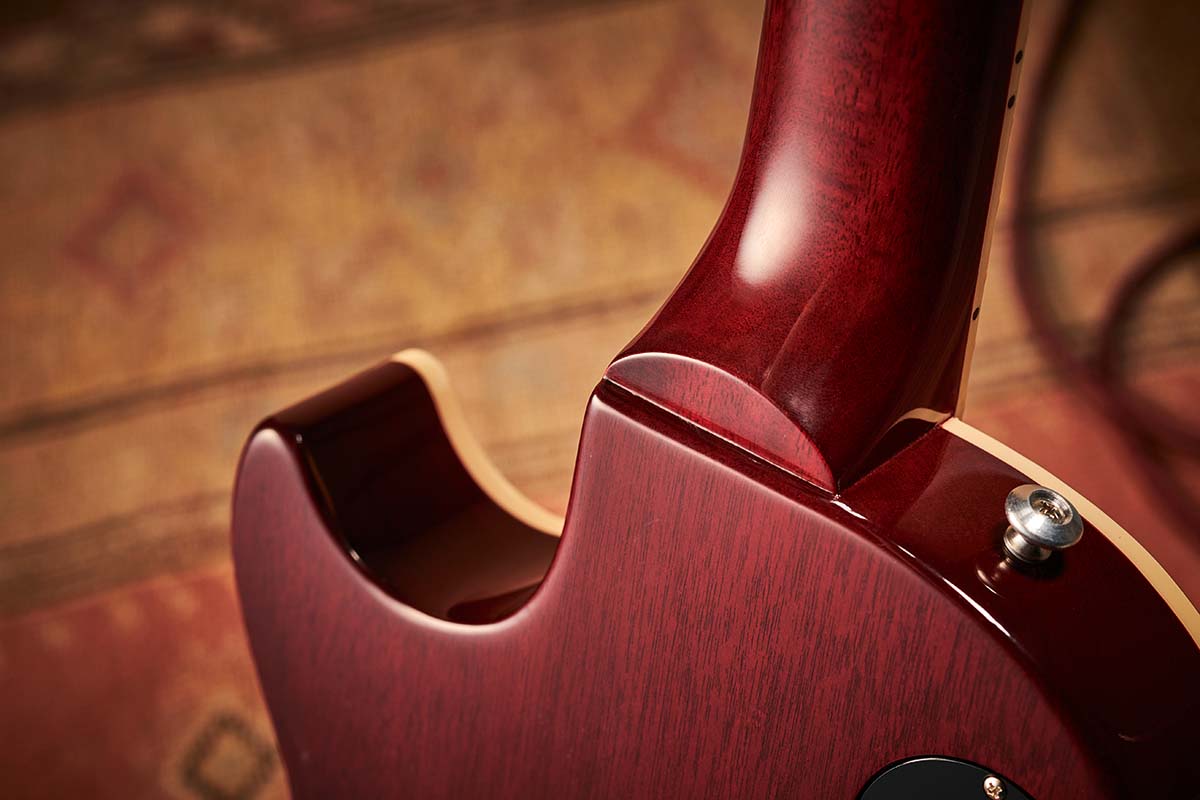
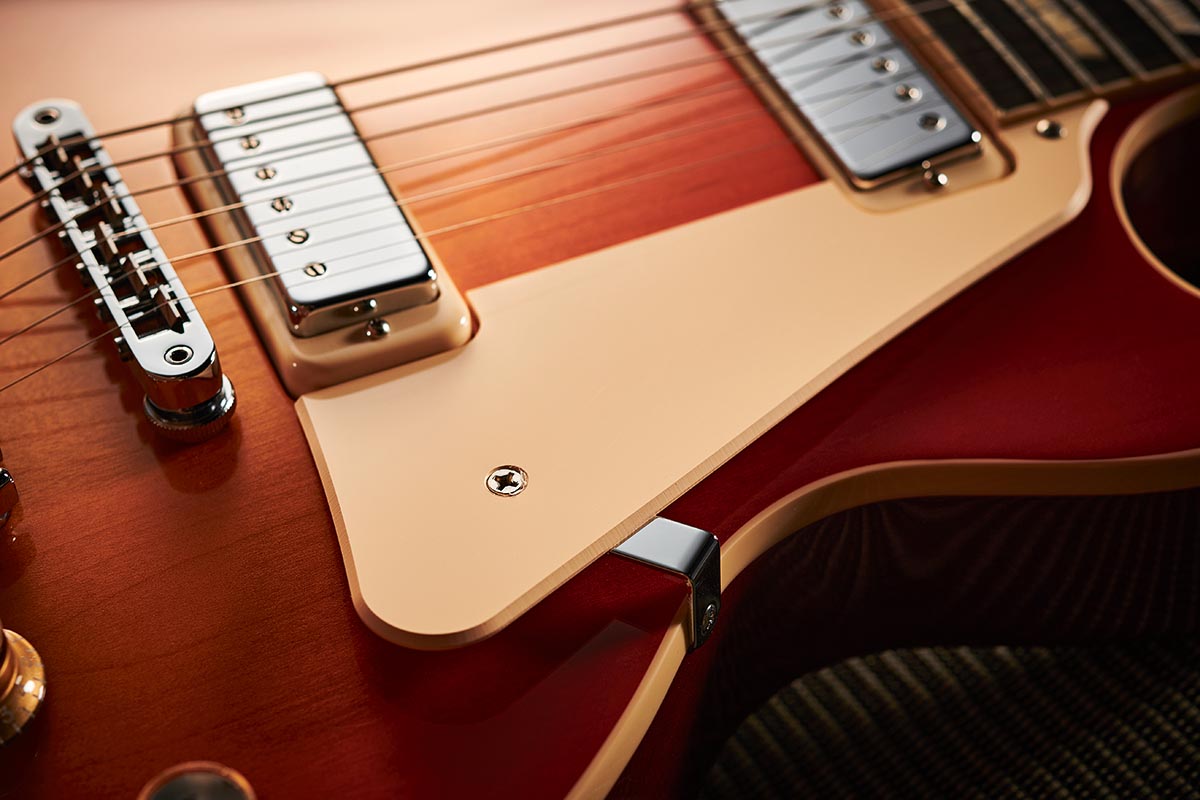
In a more clement market for post-Standard innovations, the Deluxe might have prospered. Nonetheless, it did find high-profile fans in the likes of Thin Lizzy’s Scott Gorham and the Who’s Pete Townshend.
But here we are talking about the Les Paul Deluxe as though that was the guitar sitting before us; in truth, this is simply a Les Paul inspired by the Deluxe, using a rather traditional Les Paul Standard build – albeit topping its solid mahogany body with a plain maple top – and housing the mini-humbuckers in a routing that would similarly fit a P-90 should you ever want to modify it.
The body is non-weight relieved and doesn’t it show it, weighing in at a hair under 10lbs and sending us scampering for the thickest and most generously padded guitar strap we can find. Yet heft can be a good thing.
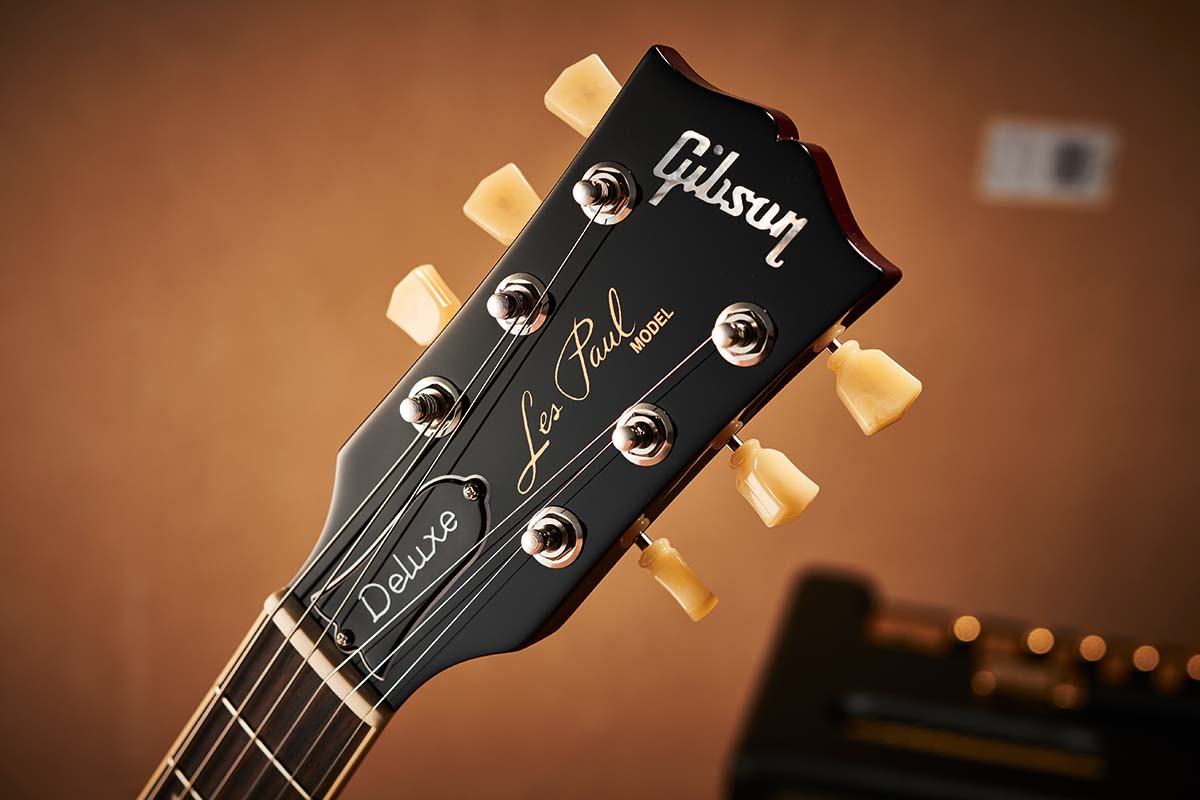
The neck, too, is a substantial affair, carved from one piece of mahogany into a rounded C profile that measures 22.8mm deep at the 1st fret and, 25.4mm at the 12th. As ever, such dimensions are a matter of taste but there is always a measure of comfort in a fat neck that gets underplayed when people talk feel. A neck like this offers support to the palm and can be incredibly comfortable.
A plain maple top is bound and stained beautifully with 70s Cherry Sunburst, with the high-gloss nitro making that stain positively glow, and there is a Goldtop option, too. We can’t be the only ones who look at the joy Pete Townshend has when playing his ’76 Deluxe and wonder if maybe we could have a Wine Red finish on this, too.
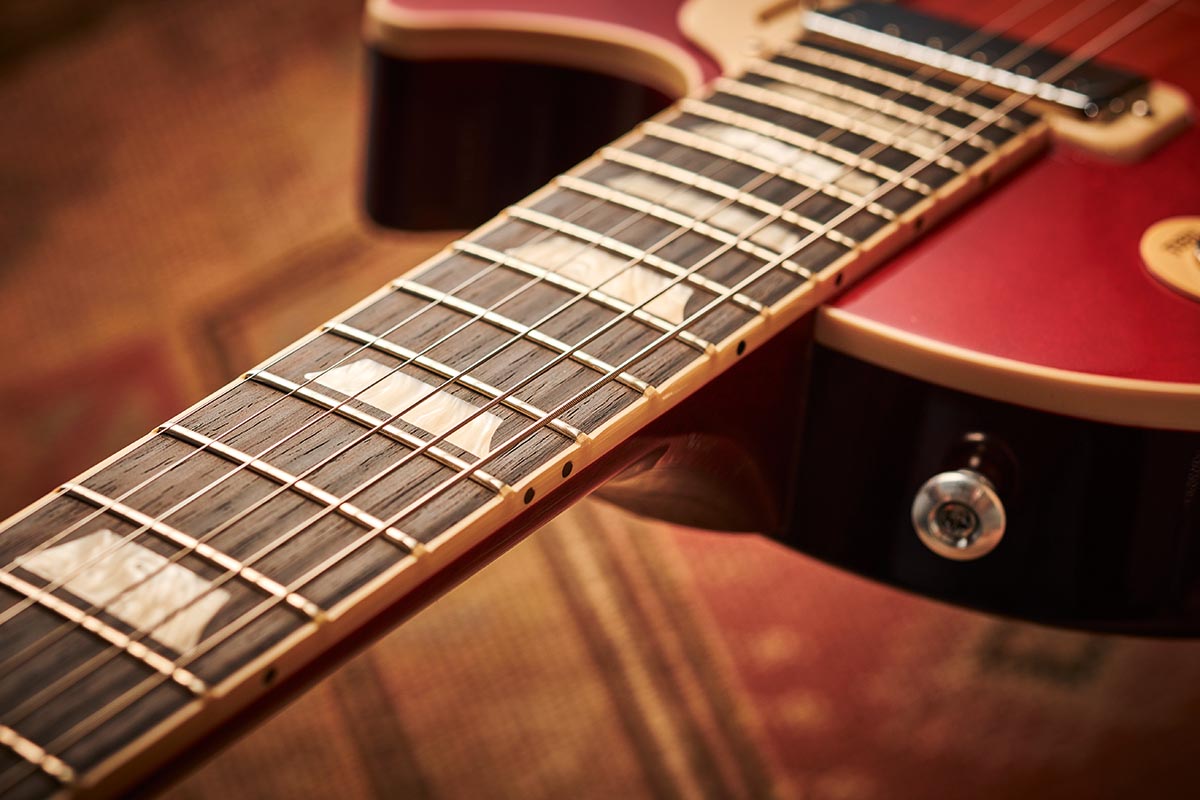
The finish is excellent. There’s plenty of attention to detail. We’ve got a single-bound Indian rosewood fingerboard, 12” radius, 22 medium frets, acrylic trapezoid inlays… Everything is in order.
As per the new broom of the system, this Les Paul has a hand-wired control circuit, with orange drop capacitors, and is arranged with the typical two volume and two tone controls plus a shoulder-mounted three-way pickup selector.
The nickel-plated tuners are smooth and solid, with vintage-style keystone tuners maintaining the 70s vibe, while the tune-o-matic bridge and aluminium stud tailpiece make for easy adjustments. It’s a beautiful looking Les Paul. Like the Classic, it wears a plain top well.
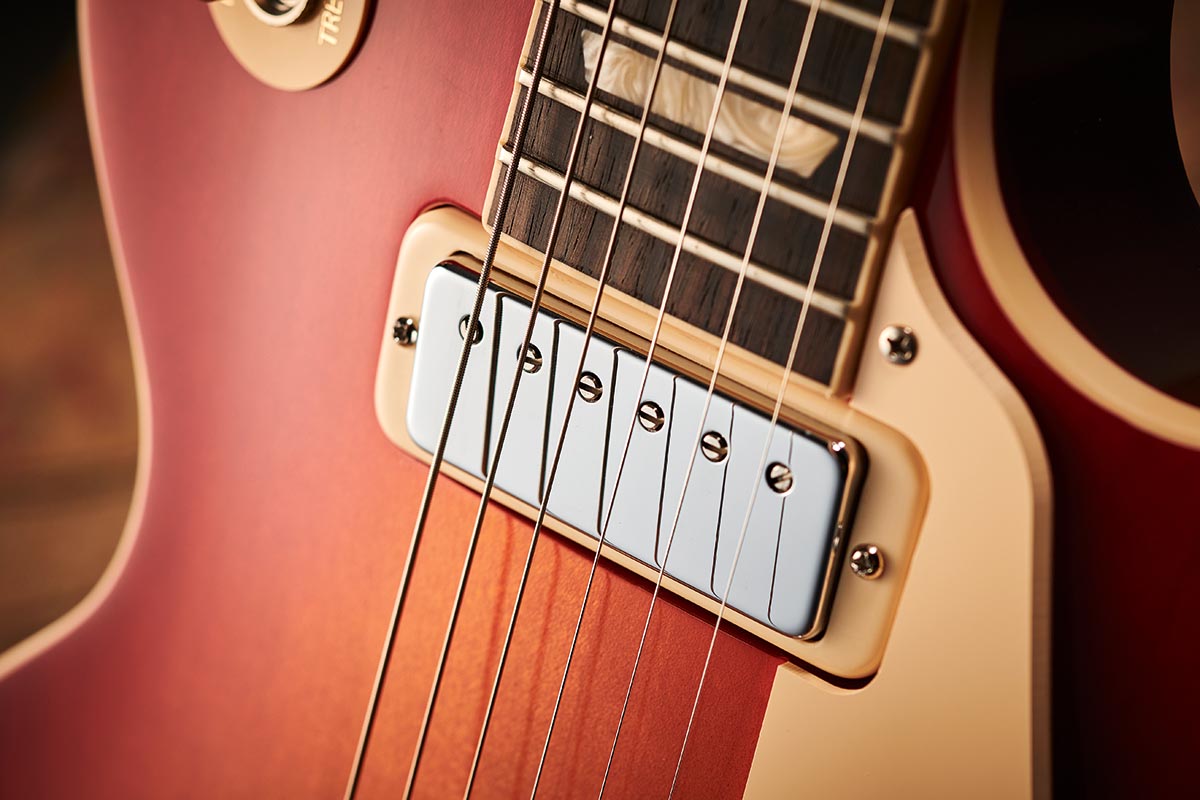
Gibson Les Paul '70s Deluxe: Performance and verdict
For all the familiar touchstones – the feel, the weight, the look – plugging in the Les Paul ‘70s Deluxe takes you aback. There’s a meatiness to the tone, a width that owes much to the bulk of the construction, but the smaller footprint of the mini-humbucker is represented in a tone that’s got something of the curled lip of twang – a little, shall we say, Telecaster-esque.
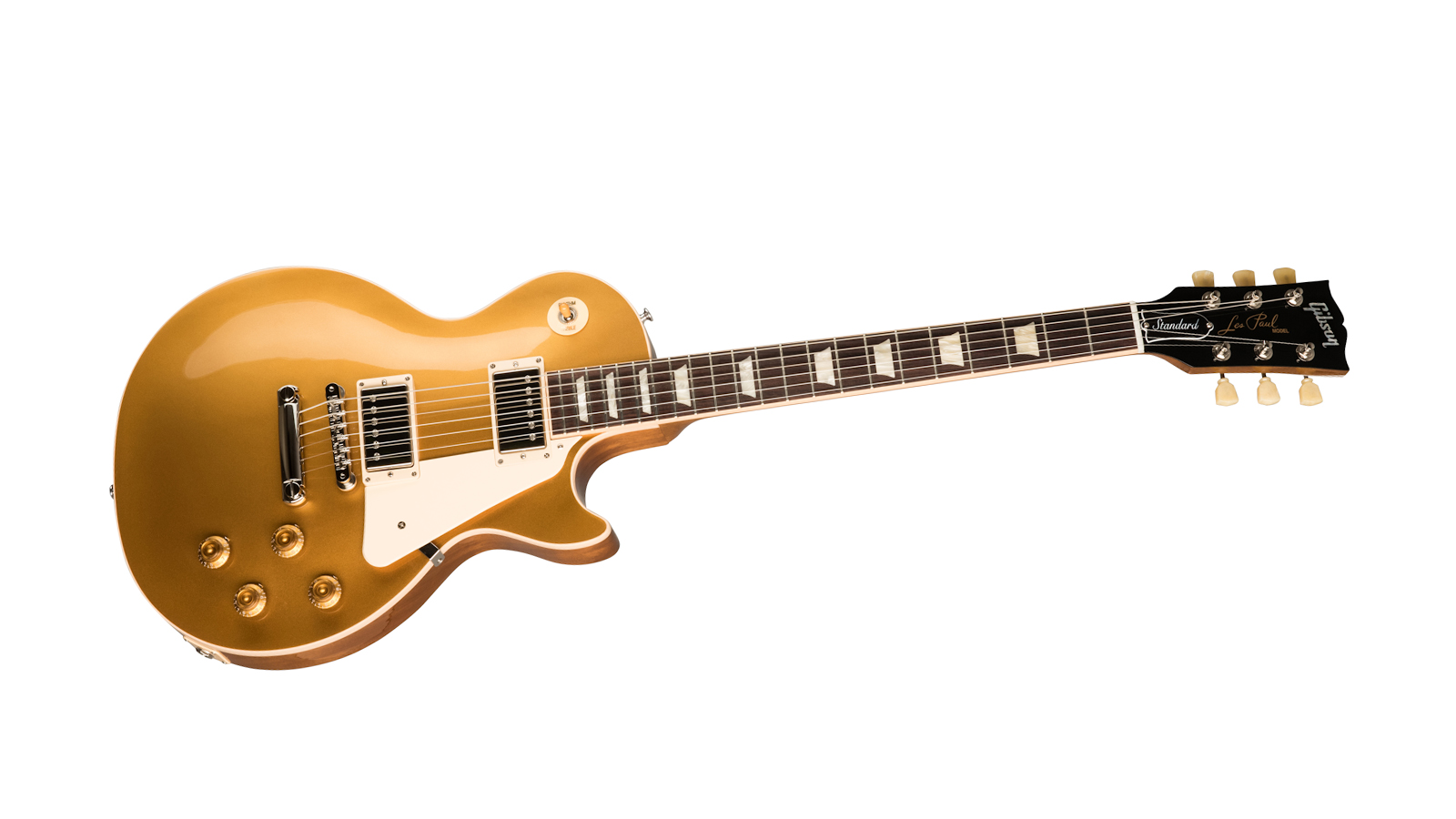
• Gibson Les Paul Standard '50s
Like the Traditional before it, the Standard ’50s is the obvious choice if you’re chasing a more vintage-y specification.
• Gibson Les Paul Standard '60s
The major construction difference lies in the neck shape with a Slim Taper for the '60s model.
• Gibson Slash Les Paul Standard
A heavyweight contender for your next favourite Les Paul, and you don't have to be a Slash super-fan to get the best out of it.
The big thing is detail; there’s lots of it, with sparkle and brightness at the bridge, superb note separation for chord work, and a clearly defined neck pickup. There are those who might yearn for the extra oomph of a regular-sized humbucker but what you lose in power you make up for in high-definition, and this is just the sort of guitar to enliven a dull amp, or for those occasions where you find your humbucking sound too muddy for the mix.
The sustain and the fundamentals are all there, and hard rockers will do well to remember there are a wealth of pedalboard options in the shape of boosts and drives to compensate for the lower output.
If there is something iconoclastic about hearing a Music City country sound through the bridge ‘bucker and a tube amp then so be it; wait until you select the middle position, where there’s an elastic bounce and an in-between sound that sounds unique enough through an overdrive pedal and positively fusion-friendly played clean. Add a wah pedal and it could do funk.
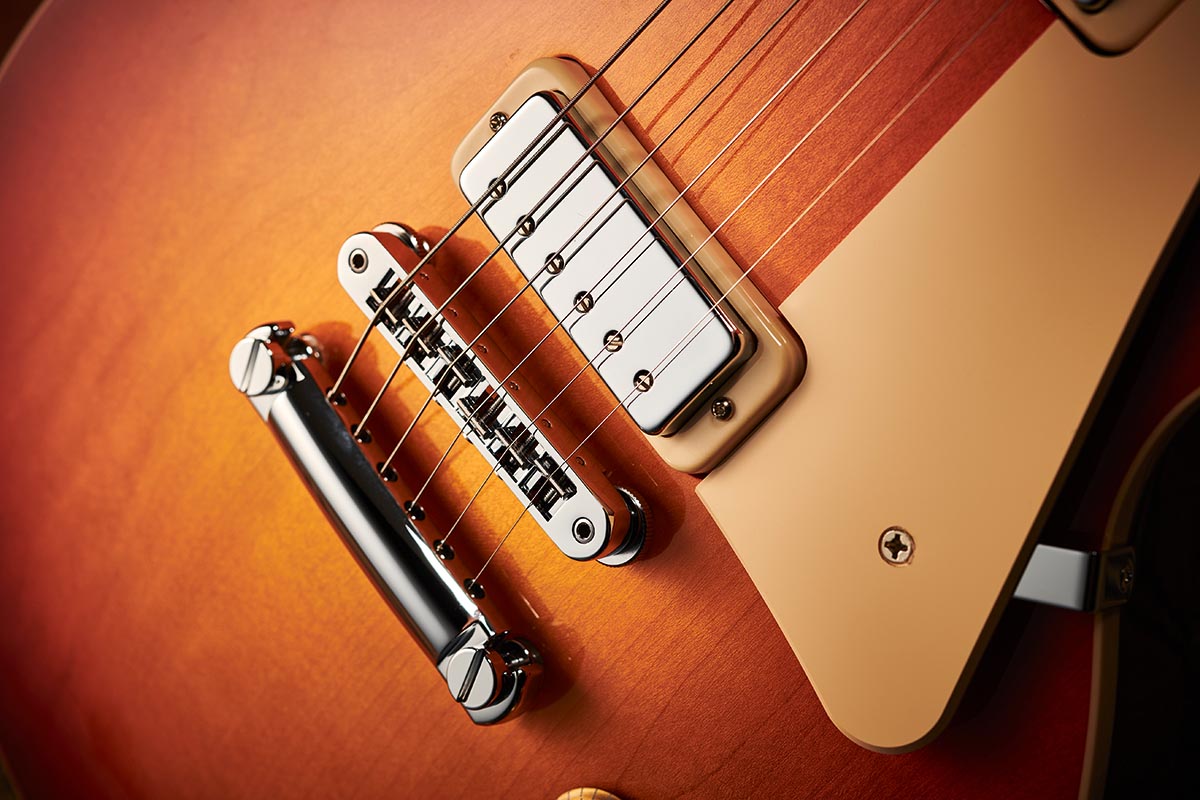
All of this is to say that, although a lesser-celebrated model from the Les Paul canon, the Deluxe was on to something all along, and this ‘inspired by’ instrument is no one-trick curio but a smart and versatile electric that can be used to follow in the power chords of Gorham, Townshend et al, or to be taken in some unexpected directions.
There’s no volute. The headstock is back to its modern 17-degree angle. The ‘pancake’ build is off the menu. Really, this is quite a conventional approach to chasing unconventional sounds and proving once more that the Les Paul still has some evolving to do and that is something to embrace.
MusicRadar verdict: A clever and stylish reworking of a lost '70s model puts clarity and brighter tones on the menu from the classic Les Paul format.
Gibson Les Paul '70s Deluxe: The web says
"Although it might be perceived as somehow less ‘rock’ (although Who and Lizzy fans might disagree!), don’t dismiss these minis in any way, especially if you like the Les Paul platform but just want a cleaner voice. It’s a different flavour, pure and simple."
Guitar World
Gibson Les Paul '70s Deluxe: Hands-on demos
Guitarist
The Trogly's Guitar Show
MooreMusicGuitars
Gibson Les Paul '70s Deluxe: Specifications
- PRICE: $2,699 / £2,199 (inc case)
- ORIGIN: USA
- TYPE: Single-cutaway, solidbody electric
- BODY: 1-piece mahogany (no weight relief) with carved plain maple top
- NECK: 1-piece mahogany, rounded ‘C’ profile, glued-in
- SCALE LENGTH: 624mm (24.6”)
- NUT/WIDTH: Graph Tech/43.53mm
- FINGERBOARD: Single-bound Indian rosewood, acrylic trapezoid inlays, 305mm (12”) radius
- FRETS: 22, medium
- HARDWARE: Tune-o-matic bridge, aluminium stud tailpiece, vintagestyle ‘Gibson Deluxe’ keystone tuners – chrome plated
- STRING SPACING, BRIDGE: 50mm
- ELECTRICS: 2x Gibson Mini Humbucker w/chrome covers, 3-way toggle pickup selector switch, individual volume and tone controls (hand-wired with Orange Drop capacitors)
- WEIGHT (KG/LB): 4.44/9.77
- OPTIONS: No
- RANGE OPTIONS: The Les Paul Standard ’50s, ’50s P-90 and ’60s all cost the same ($2,699 / £2,199)
- LEFT-HANDERS: Not currently listed for this model, but the ’50s and ’60s Standard are available left-handed
- FINISHES: '70s Cherry Sunburst (as reviewed), Gold Top – gloss nitrocellulose
- CONTACT: Gibson
MusicRadar is the number one website for music-makers of all kinds, be they guitarists, drummers, keyboard players, DJs or producers...
- GEAR: We help musicians find the best gear with top-ranking gear round-ups and high-quality, authoritative reviews by a wide team of highly experienced experts.
- TIPS: We also provide tuition, from bite-sized tips to advanced work-outs and guidance from recognised musicians and stars.
- STARS: We talk to musicians and stars about their creative processes, and the nuts and bolts of their gear and technique. We give fans an insight into the craft of music-making that no other music website can.
“Excels at unique modulated timbres, atonal drones and microtonal sequences that reinvent themselves each time you dare to touch the synth”: Soma Laboratories Lyra-4 review
“I used everything I knew about music”: How Green Day exceeded expectations with their most ambitious song
YouTube just added AI tools that makes musicians, library music and video editors redundant
